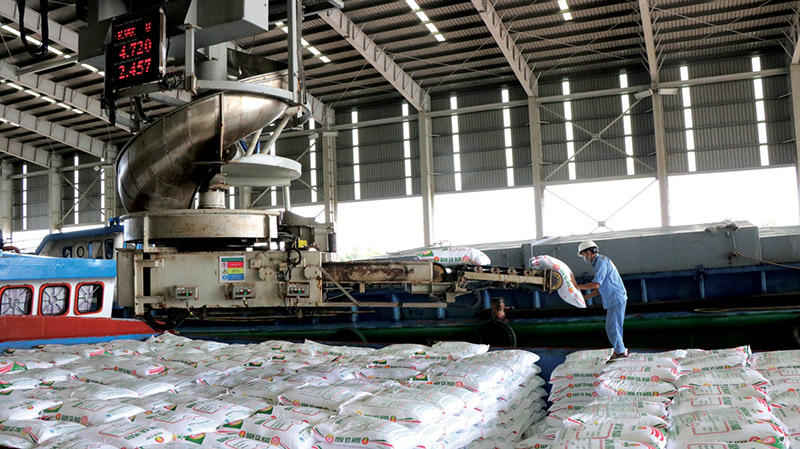HCMC – National Assembly (NA) deputies are at odds over a proposal to impose a 5% value-added tax (VAT) on fertilizers when debating its potential impact on farmers, domestic producers, and reliance on imports.
Today, October 29, the NA reviewed a draft of the amended VAT Law, which proposes imposing a 5% VAT rate on fertilizers, going against a 2014 policy that exempts fertilizers from VAT.
Lawmakers are split on the proposal’s broader economic effects. Some expressed concerns that a 5% VAT could directly impact farmers by increasing agricultural production costs. They warned that if domestic producers collude with importers to raise prices, the additional tax could further strain the sector.
Le Quang Manh, chairman of the NA Finance and Budget Committee, responded that the Government enforces price stability for essential goods like fertilizers and could take market measures if local producers exploit the tax change for profit.
NA deputy Trinh Xuan An from Dong Nai Province supported the proposal, arguing that a 5% VAT would allow domestic producers to deduct input costs, easing their tax burden. He noted that the impact would mainly affect importers, not farmers.
Conversely, NA deputy Thach Phuoc Binh from Tra Vinh Province said that fertilizers represent a significant proportion of farming costs. He suggested that maintaining the VAT exemption would relieve financial pressure on farmers, boost income, and encourage reinvestment in agriculture. He warned that a 5% VAT could also raise agricultural goods prices, thus eroding their competitiveness.
Truong Trong Nghia, an NA deputy from HCMC, emphasized the need for a comprehensive review. He argued that the tax could potentially benefit both farmers and businesses by fostering self-reliance in fertilizer production, which would allow the Government more control over costs, benefiting consumers in the long run.
Ha Sy Dong, an NA deputy from Quang Tri Province, supported the proposed VAT, suggesting it would strengthen domestic production and lessen dependency on imports.
Under the current tax policy, fertilizers are classified as non-taxable, preventing businesses in this sector from declaring or offsetting input VAT on investments in equipment and facilities. This limitation has raised production costs and affected the competitiveness of locally-produced fertilizers against imports, according to the Ministry of Finance.
In contrast, foreign fertilizer suppliers can now claim VAT refunds for inputs, potentially allowing them to offer lower prices and gain a competitive edge over domestic producers. This dynamic has raised concerns that foreign fertilizers are undercutting local producers, putting domestic producers at a disadvantage.









